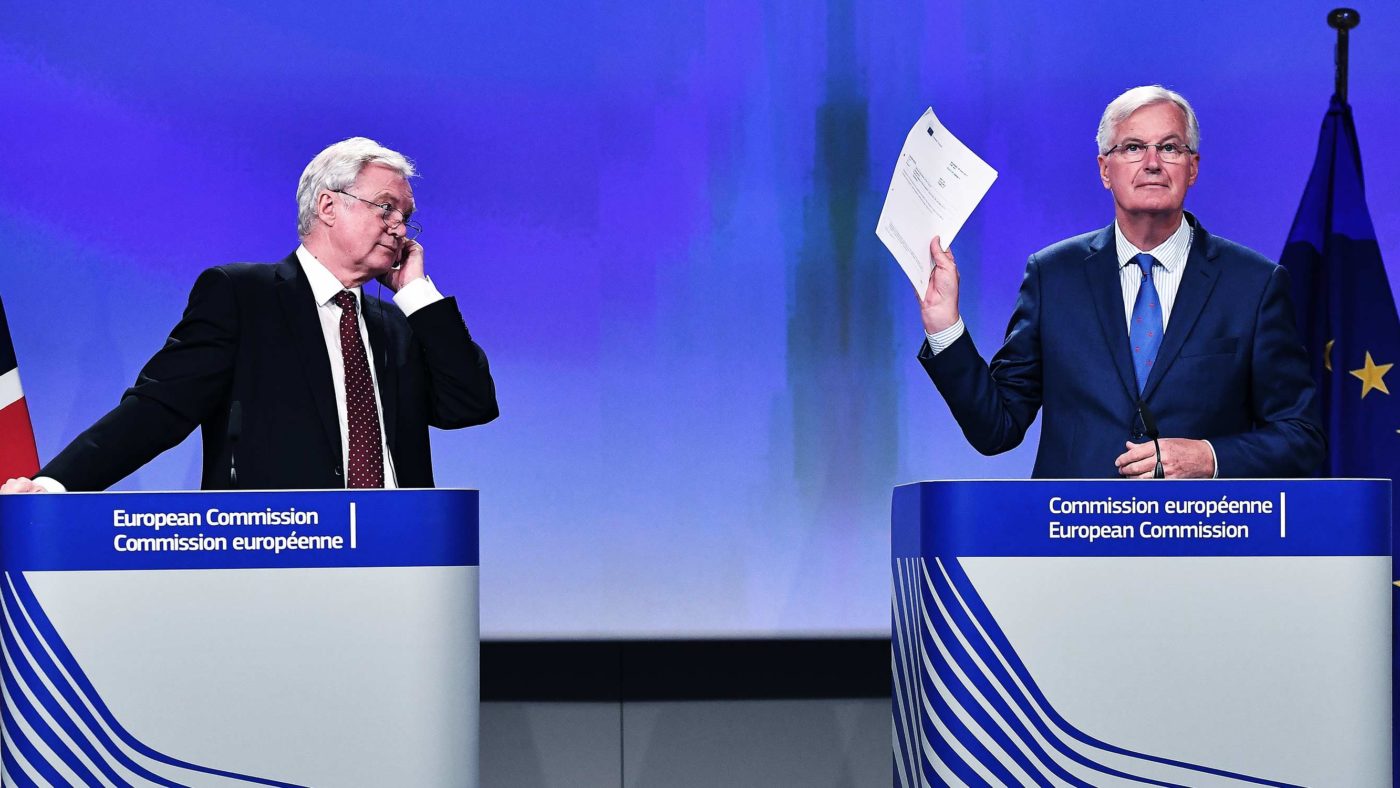Many people – very clever people – say that this week’s rows over the Brexit bill are nothing much to worry about. Yes, David Davis and Michel Barnier seem to be fundamentally at odds over everything from the size of Britain’s fiscal obligations to who ate the last chocolate biscuit on the negotiating table. Yes, the list of issues on which the two sides have apparently irreconcilable differences is getting longer, not shorter. But this is all part of the show. In the long run, there is too much at stake for a deal not to be done.
But this interpretation – offered by William Hague in the Telegraph and Pieter Cleppe here on CapX – makes a big assumption, which rather conflicts with recent political history. It is that both sides are behaving – or will eventually behave – rationally and dispassionately.
At the moment, the Brexit negotiations are reminiscent more than anything of George Bernard Shaw’s quip about Britain and America being divided by a common language. Both sides talk about obligations and partnerships, but their interpretation is very different.
Those on the EU side are still baffled – and affronted – that Britain could reject them. They see a country that is still trying to cherry-pick the bits of the EU it likes, and ignore the bits it doesn’t.
The Brits, by contrast, see an EU that is sticking them with the bill not just for what they owe, but for anything it can think of. On top of which, they are being double-charged for access to the single market – and denied any share of the assets they’ve contributed towards.
What we’re witnessing, in other words, is less a divorce deal than a full-on divorce – with all the rancour that’s associated, and no neutral arbiters to cool things down.
Of course, there is still the possibility that EU leaders will intervene to break the deadlock. But that relies on the Prime Minister demonstrating a deft diplomatic touch that has so far been beyond her. Instead of love-bombing the EU27, as Tim Montgomerie urged on CapX back in February, Mrs May made them electoral bogeymen.
There is a further problem. While Brexit is the most vital issue for Britain, it is not top of the European mind: that is why Barnier has been left to get on with it. Yes, if the talks do appear to be on the brink of collapse, EU leaders may intervene. But when?
Britain’s real enemy, remember, isn’t Brussels. It’s the clock. There is only so much time to get a deal done, and a ferocious amount of detail to get through. The European Health Insurance Card, for example, has already taken up far more negotiating time then anyone expected, but we are still far from a resolution. The same is true of the Irish border, and many other issues. And that’s before we consider all the complexities involved in getting whatever deal emerges through Parliament – or parliaments, in the European case.
All this is why a transition arrangement makes sense: what matters is that we’re leaving, not precisely when we leave. But the brutal nature of Article 50 – the cliff-edge that kicks in come 2019 – means that this may be harder to stitch together than we think. We will not be negotiating to continue old arrangements, but to enter into new ones, even if they involve exactly the same rights, obligations and costs.
Thus far, the Government has paid lip service to this point: there is apparently a contingency plan for a “no deal” Brexit, even if we aren’t being told what it is. But there is little sign of the necessary preparation happening on the ground in case of the worst-case scenario – planes sitting on runways, fruit rotting at the borders, businesses in chaos, and all the rest of it – or even one in which we have to assume responsibilities, such as customs inspection or electrical standards, that were once in EU hands.
The Barnier-Davis standoff may be a storm in a teacup. But as a matter not just of negotiating strategy, but basic self-preservation, we need to work out how we would cope, and what bare-bones agreements we might need, should the talks end in failure – not because we walked away from the table, but because there was simply too much left on it to resolve.
This article is from CapX’s Weekly Briefing email, which also features the best of our coverage from the past week. Sign up here.


